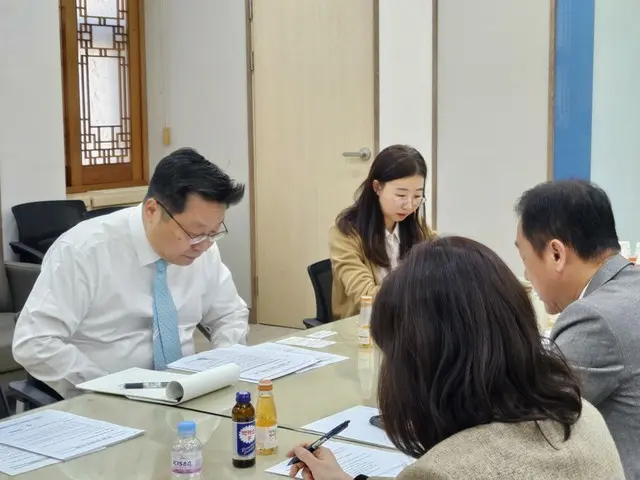The forum was held on the theme of "Strategic forum for coexistence of employment and the working generation in a super-aging society." Vice-chairman Joo Hyung-hwan said at the start of the forum, "The number of births in 2000 was 630,500.
"The number of foreign workers fell sharply from zero in 2000 to 455,000 in 2005, and a shortage of new labor forces will become a reality five to 10 years from now as people born in the 2000s enter the labor market."
He added, "Considering the speed and changes in the aging of the population, the plan for the next 10 years is extremely important," and "the committee will be tasked with drawing up a task force consisting of representatives from various sectors, related ministries and agencies, and national and private research institutes."
"We will form a task force to develop and publish measures covering all areas of the ageing society by the end of the year," he added.
Vice Chairman Zhou said, "From May, the Economic and Humanities and Social Science Research Institute and the National Policy Research Institute will
"We plan to work with the government to advance comprehensive cooperative research in all areas, including employment and income, expanding medical care and nursing care, innovating housing, culture, tourism and sports, and revitalizing the silver industry," he said.
Zhou also stressed the need to change the direction of aging policies to improve on the past policies that were biased toward elderly welfare.
"Unlike previous elderly generations, this generation is often highly educated and has a certain level of assets, so the nature of elderly labor and the nature of the elderly poverty problem may change in the future," he said.
"We need to re-recognize the heterogeneity of the age groups and cohorts of people who are in the same group," he said. "The national average age this year is 46, and it is expected to reach 60 in 2056.
"The average age in 24 counties, including Uiseong County in North Gyeongsang Province, is already over 60 years old," he said. "We need specific strategies tailored to the characteristics of each region."
Zhou stressed that ageing policies must also take into account developments in science and technology and changes in the industrial structure.
"We must step up support for people to maintain healthy retirement and improve their lives through innovative technologies such as digital healthcare, artificial intelligence, robotics, and fintech."
"We need to utilize the elderly-friendly industry as a new growth opportunity," he said.
Professor of Political Science will give a talk on the topic of "The Coming of a Super-Aging Society and Age-Integrated Employment Policy Plans," while Professor Lee Soo Young of Korea University's Institute for Aging Research will give a talk on "Super-Aging Society, Intergenerational Employment and Employment Coexistence Cooperation Plans."
Kim Seong-ae, head of the employment policy team at the Korea Employers Federation, who participated in the discussion, said, “I agree with the need to revitalize the utilization of older workers,” but added, “I am not convinced that a uniform extension of the retirement age is necessary.
"This could lead to side effects such as excessive burdens on companies and conflicts between generations over employment," said Dr. Jin Seong-jin of the Korea Institute for Labor Policy and Training.
"We need to be able to respond to diverse labor demands by providing higher education opportunities for the elderly through universities, etc."
2024/04/30 06:20 KST
Copyrights(C) Herald wowkorea.jp 104

